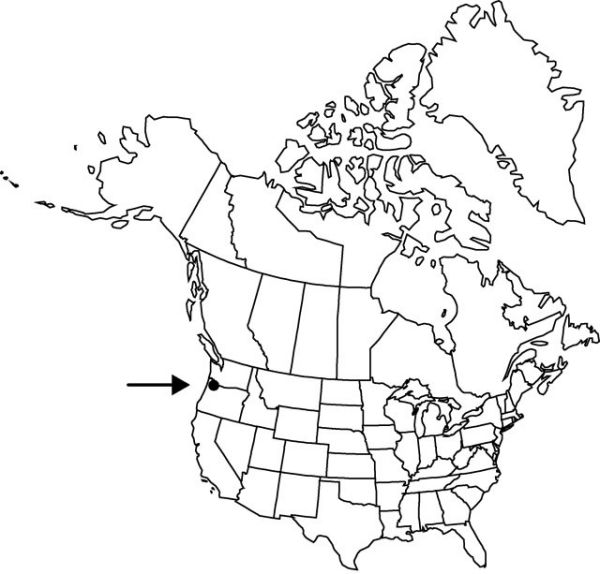Iris tenuis
Proc. Amer. Acad. Arts 17: 380. 1882.
Rhizomes superficial or very shallow, cordlike portion 1–2 dm × 2 mm, expanding to 10–15 mm diam., nodes with brown, scalelike leaves and few to no roots. Stems 1–2-branched, 3–3.2 dm. Leaves: basal with blade pale green, 3.2 dm × 1.5 cm, margins scarious basally, apex acute, proximal 2 semi- sheathing, blade 5 cm, scarious; cauline 1–2, sheathing branch and stem for ca. 1/2 their length, blade ca. 5 cm, semimembranous. Inflorescences 2–3-branched, each unit with single flower, all borne at approximately the same level; spathes 2–3 cm × 5 mm, subequal, scarious except basally and along midrib. Flowers: perianth white or blue tinged with deep violet lines; floral tube funnelform, 0.3 cm; sepals oblong-spatulate, 2.8 × 1 cm, apex deeply emarginate, signal an inconspicuous crest with low, yellow, undissected ridge; petals bluish white, oblanceolate-spatulate, base gradually attenuate into claw; ovary elliptical, 0.4–0.7 cm; style 1.8 cm, crests broadly obovate, 0.7 cm, margins erose; stigmas triangular-acuminate, margins entire; pedicel 0.4–1 cm, not lifting flower clear of spathes. Capsules depressed-globose, roundly triangular, 0.9–1.5 × 1.2 cm. Seeds pale brown, with whitish raphe, D-shaped, pitted. 2n = 28.
Phenology: Flowering May.
Habitat: Open, wooded slopes in leafy soil with Douglas fir and dense shrubs
Discussion
Of conservation concern.
Iris tenuis was originally placed in ser. Californicae, but R. C. Foster (1937) stated, “It is with some hesitation that I leave it in association with them. The broad, pale green leaves are much like those of a giant I. cristata.” F. H. Smith and Q. D. Clarkson (1956) said, “It clearly does not belong in the subsection with the other members of the Californicae,” and Clarkson in a later treatment (1958) created a new subsection, the Oregonae, for it. L. W. Lenz (1959b) moved this species into subsect. Evansia (= sect. Lophiris), with which it shows many relationships.
Selected References
None.
